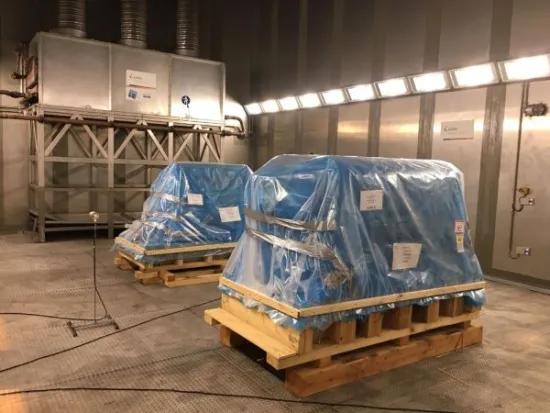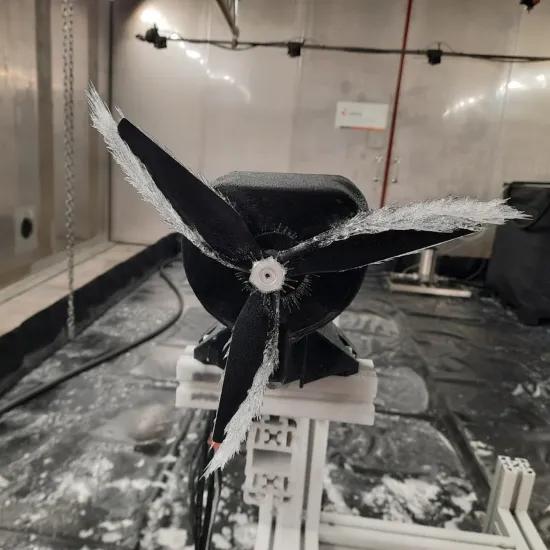Caterpillar Inc, an American company with divisions worldwide, designs and builds heavy machinery for road and waterway construction and mining. It also produces generator sets and other equipment powered by diesel engines and gas turbines. The company wants assurance about the quality of its products and components, even when stored in ports or during transport at sea. For this purpose, the company wanted a number of engine blocks transported around the world to be tested in their packaging under extreme conditions. As such, it could find out whether the packaging material adequately protects the products during sea transport and storage.
A sea of (testing) space
The Caterpillar motor blocks were tested in the Sirris large climatic test chamber, against the IEC 60068-2-30 international standard for the environmental testing of electrotechnical products. This test determines the adequacy of components, equipment or other products for use, transport and storage in high humidity conditions, combined with cyclic temperature changes, which cause condensation on the surface. The packaging must be included in the test.
During the test, the motor blocks were exposed to heat and humidity for two periods of 12 hours. A large number of motor blocks were tested in their packaging at the same time, given the size of the climatic test chamber.




